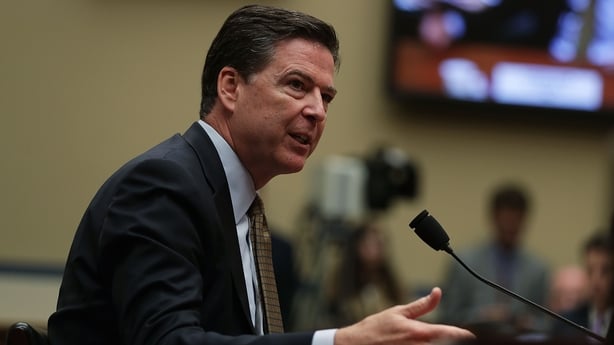The US State Department has said it will reopen its internal investigation into whether Hillary Clinton's use of a private email account and server compromised her handling of classified material.
"We will aim to be as expeditious as possible, but we will not put artificial deadlines on the process," department spokesman John Kirby said.
He also noted that the internal review could proceed now that the Justice Department investigation wrapped up with no charges filed against the presumptive Democratic nominee.
Earlier this week, the FBI advised that no charges be brought over Mrs Clinton's use of a private email account and homebrew server during her time as US secretary of state, a recommendation that the Justice Department then followed.
Although the announcement took a huge weight off Mrs Clinton, FBI chief James Comey nonetheless said she and her staff were "extremely careless in their handling of very sensitive, highly classified information."
Republicans, including Republican front runner Donald Trump, have cried foul over the lack of charges, alleging that Mrs Clinton's influence as a prominent politician helped her escape criminal proceedings.
Mr Trump has repeatedly accused Mrs Clinton of masking her involvement in illegal activity by deleting more than 30,000 emails she claimed were personal and not related to her job as top US diplomat.
Yesterday, Mr Comey was forced to vigorously defend his recommendation before the House Committee on Oversight, which summoned him to testify.

Despite tense moments, Mr Comey, a Republican former prosecutor, maintained his cool throughout the marathon grilling that lasted four hours and 40 minutes.
Although Mr Kirby declined to provide specific information about the State Department's latest review, he said it would aim to be "as transparent as possible about our results, while complying with our various legal obligations."
Of some 30,000 emails Mrs Clinton turned over to the FBI, Mr Comey said 110 contained classified information - Mrs Clinton had said none were classified at the time they were sent.
Another 2,000 emails were later "up-classified" as confidential.

